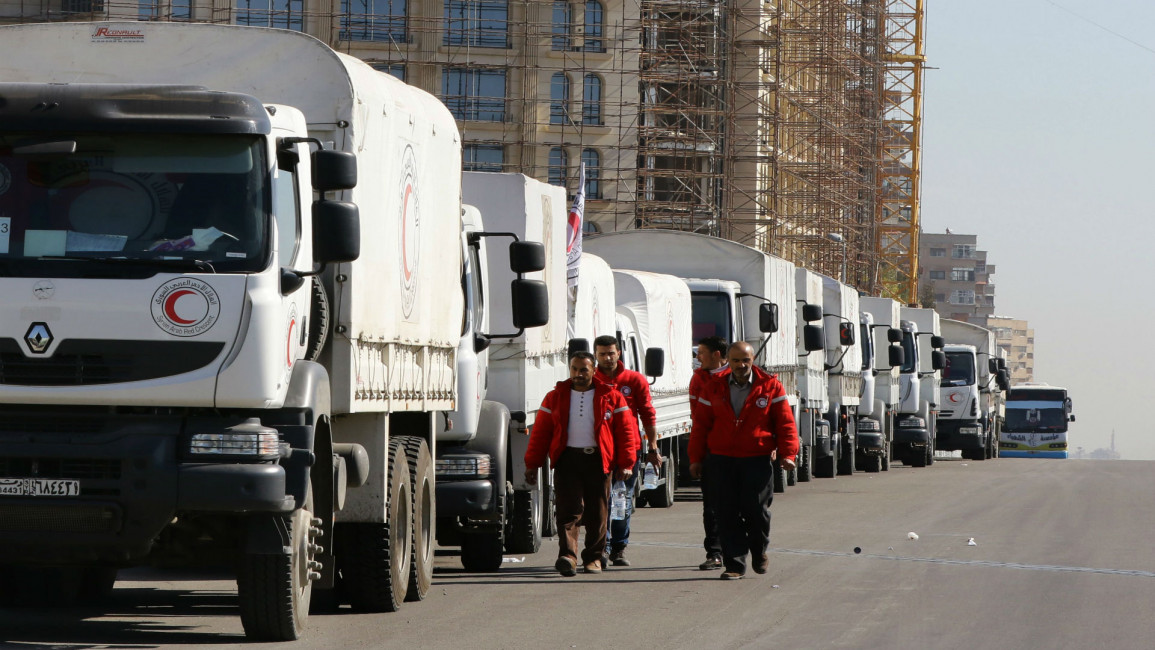UN planning major medical evacuation from besieged Syrian towns
The United Nations said Thursday it is aiming to begin a large-scale evacuation of wounded and sick people from four besieged towns in war-ravaged Syria within the next week.
Jan Egeland, who heads a UN-backed humanitarian taskforce for Syria, said "a very major" medical evacuation was planned for Madaya and Zabadani, two towns near Damascus blockaded by the regime and their allies, and Fuaa and Kafraya, which are besieged by rebels in Syria's northwest.
"All together it could be up to 500 people," he told reporters in Geneva following a meeting of the taskforce, adding the aim was for the evacuations to begin "within the next week."
Egeland said the move was desperately needed, pointing out that three boys recently bled to death in Madaya because Hizballah, which is besieging the town, ignored "desperate pleas for them to be evacuated" after they touched an undetonated explosive that went off.
They "died totally unnecessarily," he said, adding that a young man who "could have been saved" had also starved to death in the besieged town in recent days.
The problem, he said, was that an agreement on aid and evacuations from the four towns was based on a "tit-for-tat" system, in which the same numbers of aid convoys must enter the different towns simultaneously and the same numbers of evacuees must be removed.
"This is killing people," Egeland said.
 |
Five convoys have been waiting for four days to go into several areas including Kfar Batna in the Eastern Ghouta region, but remained blocked. |  |
He also said he was "disappointed" and "disheartened" by the lack of progress in bringing aid to more of the nearly half a million people trapped in towns besieged by the Syrian army, armed groups or Islamic State militants.
The UN began scaling up deliveries of aid in Syria after a ceasefire went into force in February, hoping the desperately needed supplies would shore up a fragile peace process that began that same month.
But while a new round of peace talks is scheduled to begin next week, Egeland said access was "slowing down."
Five convoys have been waiting for four days to go into several areas including Kfar Batna in the Eastern Ghouta region, but remained blocked, he said, adding that 287,000 people had not received the aid they needed as a result.
The regime was particularly to blame for the obstacles, he said, "but not exclusively."
Egeland said the members of the humanitarian taskforce, co-chaired by the United States and Russia, had been given "homework" to pressure the different sides to allow in more aid.
Egeland also urged all sides to help facilitate a major push to vaccinate millions of Syrian children against polio, measles and other diseases.
He warned though that a shortage of funds was jeopardising the vaccination efforts, hinting that not all funding pledges made at a London conference earlier this year were materialising.
"Donors have to step up funding," he said.



